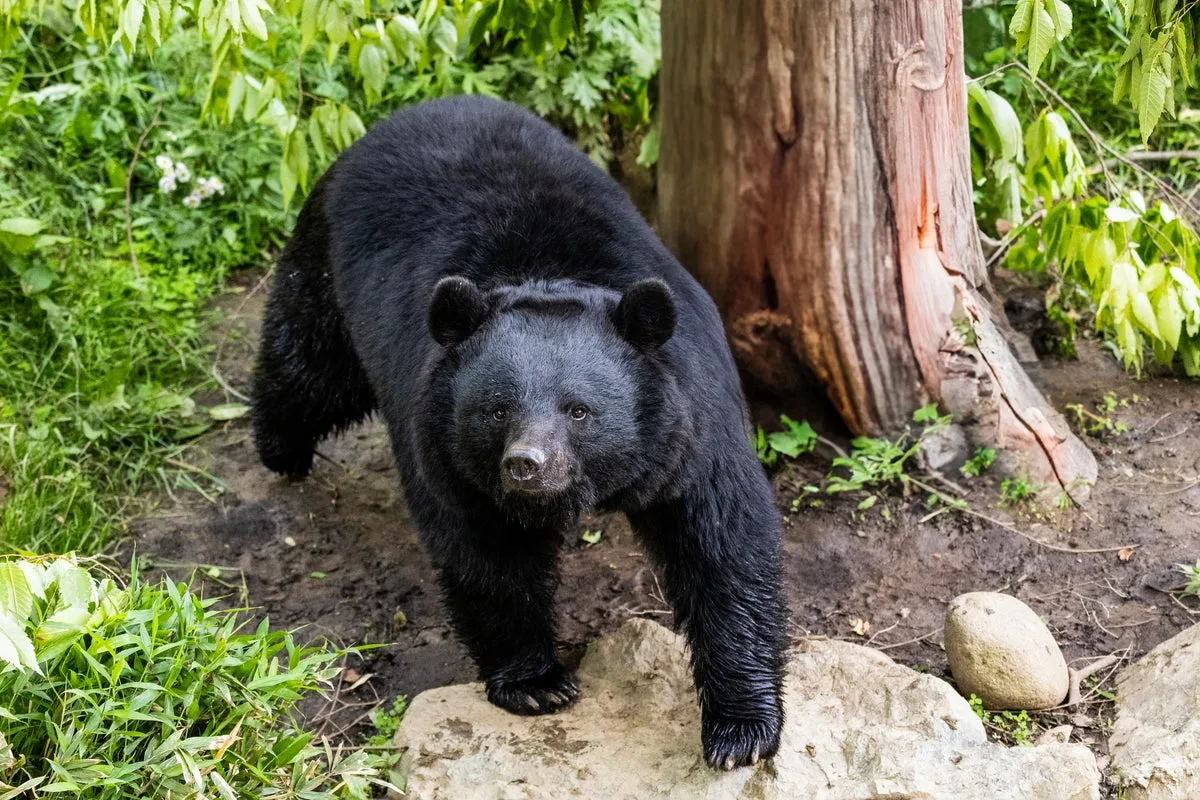Copyright yahoo

Japan has deployed military personnel to the northern prefecture of Akita following a significant increase in bear attacks across the region. The animals have been sighted near schools, railway stations, supermarkets, and even a hot springs resort, with attacks reported almost daily, predominantly in the country's north. Since April, these encounters have resulted in 12 fatalities and left more than 100 people injured, according to environment ministry figures released late October. Deputy chief cabinet secretary Fumitoshi Sato shared: "Every day, bears intrude into residential areas in the region and their impact is expanding. Responses to the bear problem are an urgent matter." An agreement between the defence ministry and Akita prefecture’s government, signed on Wednesday, outlines the soldiers’ duties. They will deploy box traps baited with food, assist in transporting local hunters, and aid in the disposal of deceased bears. The troops are not authorised to use firearms for culling the animals. The soldiers will not use firearms to cull bears. Akita governor Kenta Suzuki said local authorities were getting “desperate” due to a lack of manpower amid daily reports of bear attacks. The operation began in the town of Kazuno, where residents for weeks have been told to avoid the thick forests that surround it, stay home after dark and carry bells to deter bears that might forage near their homes for food. "The townspeople feel the danger every day," Kazuno mayor Shinji Sasamoto said after meeting 15 or so soldiers who rolled into town in a truck and several jeeps, equipped with body armour and large maps. "It has affected how people live their lives forcing them to stop going out or cancel events.” After Kazuno, a town of around 30,000 people known for its hot springs, dramatic landscapes and variety of sweet apples, the soldiers will head for the cities of Odate and Kitaakita under the agreement due to last until the end of the month. Defence minister Shinjiro Koizumi said on Tuesday that the bear mission aimed to help secure people's daily lives, but that the primary mission of the Self Defense Forces was national defence and they could not provide unlimited support for the bear response. The Japanese military is already understaffed. So far, the ministry had not received other requests for troop assistance over the bear issue, he said. In Akita prefecture, which has a population of about 880,000, bears have attacked nearly 50 people since May, killing at least four, according to the local government. Experts say 70 per cent of the bear attacks have occurred in residential areas. An elderly woman who went mushroom-hunting in the forest was found dead in an apparent bear attack over the weekend in Yuzawa City in the prefecture. Another elderly woman in Akita city encountered a bear while working on a farm and was killed in late October. And a newspaper delivery man was attacked by a bear and suffered an injury in Akita city on Tuesday. Experts say Japan’s aging and declining population in rural areas is among the reasons for the growing bear problem in recent years. Abandoned neighbourhoods and farmland with persimmon or chestnut trees often attract bears to residential areas. And once bears find food and acquire a taste, they keep coming back, experts say. Local hunters are also aging and not used to bear hunting. Experts say police and other authorities should be trained as “government hunters” to help cull the animals. Japan’s government set up a taskforce last week to create an official bear response by mid-November. Officials are considering bear population surveys, the use of communication devices to issue bear warnings and revisions to hunting rules. They also say experts should be trained in hunting and ecology. The lack of preventive measures in the depopulated and aging northern regions have also led to an increase in the populations of brown bears and Asiatic black bears, the ministry said. Japanese black bears, common across most of the country, can weigh up to 130kg. Brown bears on its northern island of Hokkaido can weigh as much as 400kg. This is not the first time Japan has deployed troops to assist in wildlife control. The military provided aerial surveillance for hunts of wild deer around a decade ago and culled sea lions to protect fisheries in the 1960s. Elsewhere, the British army provided logistical support in the mass culling of animals infected with foot-and-mouth disease in 2001.



